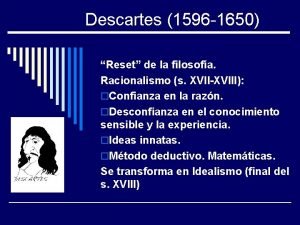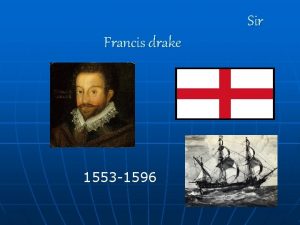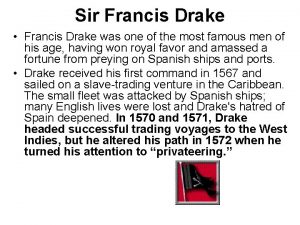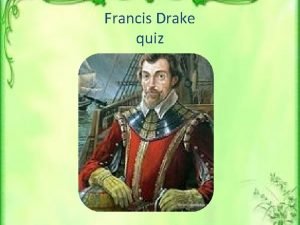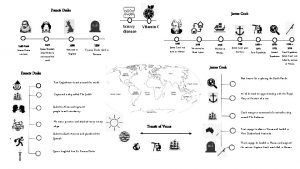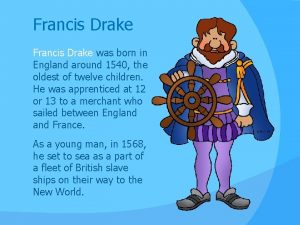Sir Francis Drake 1540 1596 Sir Francis Drake






- Slides: 6

Sir Francis Drake 1540 -1596

Sir Francis Drake was one of the great explorers of the Elizabethan age. Drake, along with several other explorers, enabled England to begin the colonisation process that led to the British Empire becoming so large. Drake was an Elizabethan sailor and navigator, and the first Englishman to circumnavigat e the globe.

Born: 1540, near Tavistock in Devon. Francis Drake was one of 12 children. In 1569, Drake married Mary Newman. They had no children and she died in 1581. By then, Drake had been knighted and was becoming very wealthy. He married again in 1585 to Elizabeth Sydenham who came from a wealthy family. They lived in Buckland Abbey in Devon. It is in this building where "Drake's Drum" is kept. The legend has it, that when the drum is heard to make a drumming noise, the nation is in danger.


Drakes voyage around the world The circumnavigation took three years, from 1577 to 1580. Originally, the voyage was probably planned as a raid on Spanish ships and ports. Five ships, manned by 164 seamen, left Plymouth, with Drake himself sailing in the Pelican. Almost all the crew thought they were heading for the Mediterranean. Two ships were destroyed, then the Marigold was lost, with all her crew, and the Elizabeth turned back and sailed home. By October 1578, as the company started up the western coast of South America, there were just 58 left, all on the Pelican. Drake renamed his ship the Golden Hind. Drake returned from his voyage around the world with the little Golden Hind packed full of spices from the Indies, and plundered Spanish silver and treasure.

• He and his naval fleet was a constant source of trouble for the Spanish bullion ships that left what is now Mexico and South America. many were sunk or were boarded and had their valuable cargo taken. Queen Elizabeth I loved jewels and the treasures brought back by Drake is most associated with the defeat of the Spanish Armada in 1588. Drake died in 1596 in the West Indies. He was doing what he did well - attacking the Spanish. However, on this adventure in 1596, his expedition against the Spanish was not going well. He got the "bloody flux" and died on January 28 th. Drake was buried at sea in a lead coffin off of the coast of Puerto Bello, Panama.

